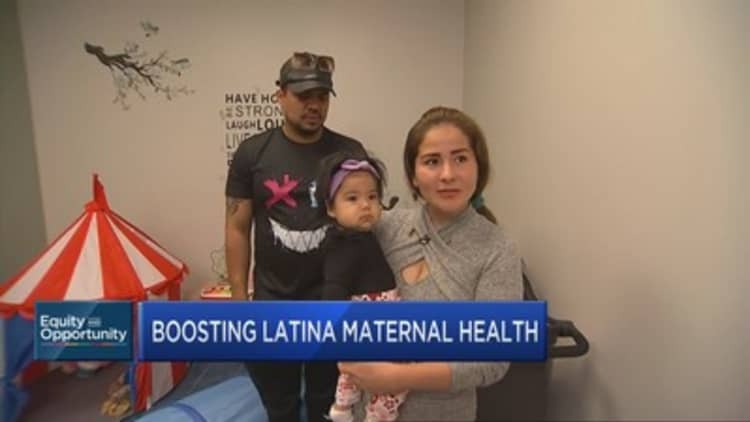
Zaza Cristina Robles, a pregnancy coach from Peru, sought medical care upon arriving in the U.S. at 16 weeks pregnant. However, the high cost of medical bills frightened her and her husband. Luckily, they were connected with the Hispanic Health Council’s Comadrona program, which assists Latina immigrants and low-income pregnant women in navigating the complexities of the U.S. healthcare system. Thanks to the program, Robles obtained health coverage and received support from her comadrona, including finding a doctor who treats low-income patients and accessing additional services. The program also offers birthing classes in the participants’ language.
Maternal morbidity and mortality rates in the U.S. are significantly higher compared to other developed countries. To address this issue, various factors such as health education and support before, during, and after pregnancy are being targeted for improvement.
Latina maternal morbidity and mortality
The pandemic exacerbated maternal mortality rates, particularly among Latinas. According to the Centers for Disease Control and Prevention, the U.S. experienced a 44% increase in maternal mortality for Hispanic women in 2020. Latinas with private insurance plans have a 22% higher rate of severe pregnancy complications compared to non-Hispanic white women. Moreover, low-income Hispanic women on Medicaid have a 28% higher rate of complications. Factors such as higher rates of obesity, chronic conditions like diabetes, financial barriers, and cultural barriers contribute to these disparities.
High costs spur investments
An analysis by the Commonwealth Fund revealed that the cost of maternal and child morbidity for U.S. births in 2019 was $32.3 billion. Health insurers and large employers like Walmart have recognized the problem and expanded coverage for pregnancy-support programs. For example, Walmart now provides up to $1,000 for doula services to its workers in four states. Initiatives like Blue Cross Blue Shield of South Carolina’s Centering Pregnancy program have successfully reduced newborn hospitalization rates and resulted in substantial cost savings. These actions not only support mothers but also benefit the companies themselves.
In addition to pregnancy support, the Comadrona program offers postpartum assistance, including help with diapers and lactation coaching. Participants like Zaza Cristina Robles have expressed gratitude for the program’s support, which contributed to a complication-free delivery.
Denial of responsibility! Vigour Times is an automatic aggregator of Global media. In each content, the hyperlink to the primary source is specified. All trademarks belong to their rightful owners, and all materials to their authors. For any complaint, please reach us at – [email protected]. We will take necessary action within 24 hours.


